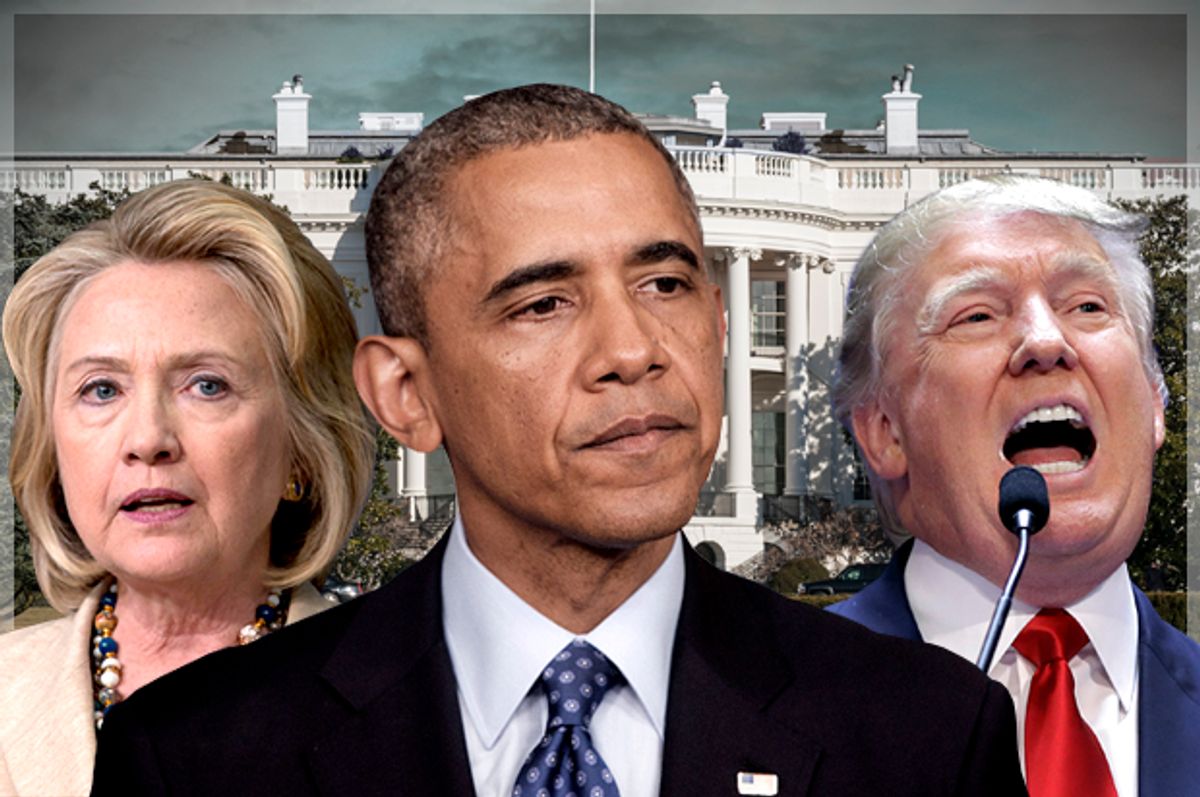In his revealing new interview with New York Magazine, President Barack Obama reflected on five days that shaped his presidency and specifically referenced then-senate minority leader Mitch McConnell's 2010 vow that Republicans' "top political priority" was to deny him a second term.
Obama also shared with reporter Jonathan Chait that it was only in 2010 that he had learned of Republican congressional leaders' earlier attempts right before his first inauguration to cement that strategy.
The nation's first black president said of McConnell's 2010 admission of obstruction, "By that point it was pretty apparent by his actions that it was already his No. 1 goal,"
Probably the moment in which I realized that the Republican leadership intended to take a different tack was actually as we were shaping the stimulus bill, and I vividly remember having prepared a basic proposal that had a variety of components. We had tax cuts; we had funding for the states so that teachers wouldn’t be laid off and firefighters and so forth; we had an infrastructure component. We felt, I think, that as an opening proposal, it was ambitious but needed and that we would begin negotiations with the Republicans and they would show us things that they thought also needed to happen. On the drive up to Capitol Hill to meet with the House Republican Caucus, John Boehner released a press statement saying that they were opposed to the stimulus. At that point we didn’t even actually have a stimulus bill drawn up, and we hadn’t meant to talk about it. And I think we realized at that point what proved to be the case in that first year and that second year was a calculation based on what turned out to be pretty smart politics but really bad for the country.
On his way out the door, Obama told New York Magazine on Sunday that there has been a "shift in the center of gravity for the Republican Party." The president cited the emergence of the Tea Party and proliferation of right-wing media as the beginning of the end of “classic deal-making between Democrats and Republicans” in Washington, D.C., drawing "a straight line from the announcement of Sarah Palin as the vice presidential nominee to what we see today in Donald Trump.”
For a president who premised his initial run for the White House on what proved to be an elusive notion of bipartisan cooperation with Congress, Obama gave realistic assessment to Chiat that the modern Republican Party seeks power at all costs but it is frustratingly late. But what if it served to do the unthinkable, shame the shameless?
Days before New York magazine interview was published, congressional Republicans used some incredible spin to blame the president for a bill he actually vetoed, chastising him for failing to adequately warn them against supporting the measure. Hours after awkwardly agreeing that Trump is a role model for America's children during a debate, vulnerable New Hampshire Republican Sen. Kelly Ayotte was forced to walk back her comment in an admission that the GOP standard bearer is an albatross for the party's chances of holding the Senate.
Perhaps sensing that the collective GOP reputation of obstructionism coupled with the taint of Trump as the GOP nominee may be too great to overcome during a presidential election, some vulnerable Republican senators are suddenly openly suggesting that if Democrat nominee Hillary Clinton were to win the White House she would not face the same level of obstinance that Obama faced.
"Barack Obama was somewhat of an unknown," Sen. Johnny Iskason, a Republican from Georgia, recently told the Atlanta Journal-Constitution. "He was a senator, but only for a year-and-a-half before he was elected president," Iskason said in order to justify his party's unwillingness to work in a more cooperative fashion with the Obama administration.
Iskason, a Trump supporter who is up for re-election in a state that is not as reliably red as it has been in years past, insisted that the same would not be true of a Clinton administration.
"She is a known commodity, and I think there’ll be more camaraderie in terms of working together than there might have been in the early days of Obama," he told the paper.
"I don’t think it will be like the post-Obama election at all," he said of Republicans' reaction to the nation's first female president.
It should be noted that despite the record levels of opposition mounted by the Republican Party against Obama's Cabinet appointments, Clinton won confirmation as secretary of state by a vote of 94 to 2.
Former Oklahoma senator Don Nickles recently told Roll Call that, “I would think Sen. Clinton would have a lot more respect for the institution than Obama did.”
Republicans' open denouncements of Trump and curious boosting of Clinton is likely little more than a ploy to reverse a decade-long trend and bring back ticket splitting during the upcoming election.
Yet with the continuing reality of a fragmented media landscape and gerrymandered districts keeping Republicans from having any incentive to work with a Democratic president, voters should not go into this election blinded by the promises of bipartisanship that fooled President Obama.



Shares